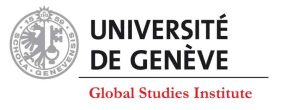The Conference
It is a unique moment in the study of interrogation and torture and in the development of international law. Two novel and significant developments are unfolding: there is emerging scientific research into the most effective interrogation techniques; and drawing on these scientific findings, there are efforts to set standards for non-coercive interrogation and to integrate them into international law.
These advances have the potential to transform the conversation on interrogation and torture in many fields of study—psychology, neuroscience, career investigation and interrogation, philosophy, ethics, legal study and practice, and international relations—as well as to transform the current policies and practices of governments worldwide.
Symposium leaders Steven J. Barela, Mark Fallon, Gloria Gaggioli, and Jens David Ohlin are the editors of a forthcoming volume delving into these areas entitled Interrogation and Torture: Integrating Efficacy with Law and Morality to be issued in 2019 under the CERL Series in the Oxford Series in Ethics, National Security and the Rule of Law.
In closed session, five unique panels of volume contributors from multiple disciplines and countries will examine these developments and their potential outcomes and international impact. Each session is multi-disciplinary and will produce collaborative and integrated dialogue and analyses. Additional information, insights, and recommendations derived from the symposium will be incorporated into relevant volume chapters.
In addition to the closed sessions, the symposium will feature a keynote address, open to the public, by Juan E. Méndez, former UN Special Rapporteur on Torture and Other Cruel, Inhuman and Degrading Treatment or Punishment. Professor Méndez’s address, entitled “A Universal Protocol for Investigative Interviewing: An End to Interrogation and Torture,” will be followed by a panel discussion with Professor Méndez, Mr. Alberto Mora and Dr. Steven Xenakis. Professor Claire Finkelstein, CERL’s Director, will moderate.
This program has been approved for 2 ethics CLE credits for Pennsylvania lawyers. CLE credit may be available in other jurisdictions as well. Attendees seeking CLE credit should bring separate payment in the amount of $80.00 ($40.00 public interest/non-profit attorneys) cash or check made payable to The Trustees of the University of Pennsylvania.
inal Law and Philosophy on this topic.
Conference Report
Schedule
Thursday, September 20, 2018
12:45 pm -1:00 pm
Welcome & Registration
Participants are free to have lunch on their own.
1:00 pm -1:10 pm
Opening Remarks: Steven J. Barela & Mark Fallon
1:10 pm – 2:30 pm
Session 1 – Moderator: Claire Finkelstein
- Steven Barela – “Bentham and the So-Called Ticking Bomb: Efficacy, Certainty and Suspicion”
- Jay Bernstein – “Torture, Dignity and the Rule of Law”
- Michael Skerker – “Moral Concerns Associated with Rapport-Based Interrogation Techniques: The Case of the Perkins Interrogator”
2:30 pm – 2:50 pm Break
2:50 pm – 4:10 pm
Session 2 Moderator: Mark Fallon
- Gloria Gaggioli – “Unmasking the Challenges: Interrogation and International Law”
- Steven Kleinman and Christian Meissner – “Developing Rapport and Trust in the Interrogative Context”
- Manfred Nowak and Giuliana Monina – “Defining Torture and the Obligation of the Systematic Review in the CAT Treaty”
4:10 pm – 4:30 pm Break
4:30 pm – 6:30 pm
Public Keynote Address by Juan E. Méndez followed by a Panel Discussion with Alberto Mora and Dr. Steven Xenakis moderated by Claire Finkelstein.
Public Keynote Address by Juan E. Méndez followed by a Panel Discussion with Alberto Mora and Dr. Steven Xenakis moderated by Claire Finkelstein.
“A Universal Protocol for Investigative Interviewing: An End
to Interrogation and Torture”
Mr. Méndez is one of the world’s most recognized advocates of a universal protocol for non-coercive interviews conducted by law enforcement officials, military and intelligence personnel, and other bodies with investigative mandates. The protocol’s aim is to ensure that authorities discontinue
confession-based interrogation of criminal suspects, political and war prisoners, and other detainees so that no one is subjected to torture, mistreatment, or coercion.
Mr. Mora is the American Bar Association’s Associate Executive Director for Global Programs. In this capacity, he directs the ABA’s global Rule of Law Initiative, oversees the ABA’s Human Rights Center, and coordinates the ABA’s relationship with the United Nations and specialized agencies and functions. Among other honors and recognitions received by him, in 2006 Mora was awarded the John F. Kennedy Memorial Foundation’s Profile in Courage Award in recognition of his consistent opposition while serving as Navy General Counsel to the cruel interrogation of detainees in the post-9/11 period. His detainee-related activities at the Navy have been widely reported in periodicals, books and documentaries. In 2013, he was included in Mariana Cook’s book “Justice” as one of 99 individuals who have made a significant contribution to human rights in recent years.
Dr. Steven Xenakis s a retired brigadier general and Army medical corps officer with 28 years of active service. He is an adjunct clinical professor at the Uniformed Services University of Health Sciences. He is the Founder of the Center for Translational Medicine, a nonprofit that conducts clinical research and development. He has been a senior adviser to the Department of Defense on neurobehavioral conditions and medical management. Dr. Xenakis serves as an anti-torture advisor to Physicians for Human Rights and belongs to the group of retired generals and admirals convened by Human Rights First.
46:30 pm – 9:00 pm
Reception and Dinner for Participants at the Inn at Penn – Hourglass Room
3600 Sansom Street, Philadelphia PA 19104
Friday, September 21, 2018
9:30 am – 10:50 am
Session 3 Moderator: J.M. Bernstein
- Gregg Bloche – “Behavioral-Science Professionals & National-Security Interviewing: From No-Mans-Land to Rules of the Road”
- Karin Loevy – “Cycles of Compulsion: Efficacy and Legality in the History of Israeli Torture Debates and Practice”
- Darius Rejali – “Torture and Democracy Ten Years Later”
10:50 am – 11:10 am Break
11:10 am – 12:30 pm
Session 4 Moderator: Steve Kleinman
- Katherine Newell and David Luban – “Calculated to Profoundly Disrupt the Personality: Interrogational Abuse and the U.S. Torture Act’”
- Stephen Soldz – “Professional Standards in the Aftermath of Torture: The Struggles of the American Psychological Association”
- Shane O’Mara – “Interrogating the Brain: Torture and the Neuroscience of Humane Interrogation”
12:30 pm – 1:45 pm Lunch
1:45 pm – 3:05 pm
Session 5 Moderator: Darius Rejali
- Mark Fallon and Susan Brandon – “The HIG Project: The Road to Scientific Research on Interrogation”
- Juan Méndez – “Setting Universal Standards for Non-Coercive Interviews”
- Ray Bull and Asbjorn Rachlew, “Investigative Interviewing: From England to Norway and Beyond”
3:05 pm – 4:00 pm
Closing & Next Steps
Gloria Gaggioli & Jens David Ohlin
Participants
Steven J. Barela, LL.M., Ph.D.
Research and Teaching Fellow at the University of Geneva in the Global Studies Institute
Professor of Philosophy at the New School of Social Research
Professor of Law at Georgetown University and author of The Hippocratic Myth: Why Doctors Are Under Pressure to Ration Care, Practice Politics, and Compromise Their Promise to Heal (Palgrave MacMillan, 2011)
Ms. Marissa Bluestine
Executive Director, Pennsylvania Innocence Project
Research psychologist at the Defense Intelligence Agency (DIA) and former program manager for research at the High-Value Detainee Interrogation Group (HIG)
Postdoctoral Scholar at Iowa State University working on an FBI-funded project evaluating the effectiveness of rapport and trust building techniques on information gain in intelligence interviews.
Assistant Professor in the Department of Sociology and Criminology, University of Denver
Author of the book Unjustifiable Means and an international security consultant, specializing in terrorism, violent extremism and interview and interrogation research and practice.
Algernon Biddle Professor of Law and Professor of Philosophy and CERL Faculty Director, University of Pennsylvania Law School
Assistant Professor at the University of Geneva (Law Faculty)
Colonel, U.S. Air Force (Ret), a 30-year career military intelligence officer and recognized expert in human intelligence, strategic interrogation, and special operations
Manager of the JSD Program at New York University School of Law and a scholar at the Institute for International Law and Justice (IILJ) (U.S.)
Professor of Human Rights Law in Residence and Faculty Director of the Anti-Torture Initiative at American University Washington College of Law, and former UN-appointed Special Rapporteur on Torture and other Cruel, Inhuman or Degrading Treatment or Punishment (Argentina)
American Bar Association’s Associate Executive Director for Global Programs and Director of the ABA’s global Rule of Law Initiative and Senior Fellow at the Carr Center for Human Rights Policy, Harvard Kennedy School
Ms. Katherine Newell
Expert in detention and interrogation issues in the Military Commissions Defense Organization, which provides defense services for persons facing prosecution in the U.S. military commissions operating at Guantanamo Bay Naval Station
Professor of Experimental Brain Research at Trinity College Dublin and Principal Investigator and former Director of the Trinity College Institute of Neuroscience —the University of Dublin
Vice Dean and Professor of Law, Cornell Law School and member of CERL’s executive board (U.S.)
Psychological Ethics Advisor to Physicians for Human Rights and a founding member of the Coalition for an Ethical Psychology (U.S.)
Professor of Political Science at Reed College and author of Torture and Democracy (Princeton University Press, 2007), winner of the 2007 Human Rights Book of the Year Award from the American Political Science Association (U.S.)
Assistant Professor in the leadership, ethics, and law department at the United States Naval Academy and author of An Ethics of Interrogation (University of Chicago Press, 2010) (U.S.)
Professor at the Boston Graduate School of Psychoanalysis and Director of the school’s Social Justice and Human Rights Program (U.S.)
Professor of Law at Temple University Beasley School of Law
Brigadier General (Ret.), U.S. Army. Anti-torture advisor to Physicians for Human Rights
Suggested Readings
CERL policy paper on The Ethics of Interrogation and the Rule of Law (2018)
Interim Report, Torture and Other Cruel, Inhuman or Degrading Treatment or Punishment, United Nations General Assembly (2016)
Christian Meissner et al., Developing an Evidence-Based Perspective on Interrogation, U.S. High-Value Detainee Interrogation Group (HIG)
Aldert Vrij et al., Psychological Perspectives on Interrogation, 12(6) Perspectives on Psychological Science (2017)
U.S. High-Value Detainee Interrogation Group (HIG) Research Program, Bibliography (2017)
Intelligence Science Board, Educing Information – Interrogation: Science and Art, NDIC Press (2006)
U.S. High-Value Detainee Interrogation Group (HIG), Interrogation: A Review of the Science (2016)
The FBI-Administered High-Value Detainee Interrogation Group, Interrogation Best Practices (2016)
Steven Barela, On Obama and Ill Treatment: Interdisciplinary Policy Against Torture’s Return (2018)
Mark Fallon, Unjustifiable Means (2017)
Michael L. Gross, Regulating Torture in a Democracy: Death and Indignity in Israel, 36(3) Polity 367 (2004)
David Luban, Liberalism, Torture, and the Ticking Bomb, 91(6) Virginia L. Rev. 1425 (2005)
David Luban & Henry Shue, Mental Torture: A Critique of Erasures in U.S. Law, 100 Geo. L. J. 823 (2012)
Samantha Newbery et al., Interrogation, Intelligence and the Issue of Human Rights, 24 Intelligence and National Security 631 (2009)
Manfred Nowak, What Practices Constitute Torture?: US and UN Standards, 28 Hum. Rights Q. 809 (2006)
Michelle Querijero, Without Lawyers: An Ethical View of the Torture Memos, 23 Geo. J. Legal Ethics 241 (2010)
Darius Rejali, Torture and Democracy (2008)
Jerome Slater, Tragic Choices in the War on Terrorism: Should we Try to Regulate and Control Torture? 121 Political Science Quarterly 191 (2006)
U.S. Department of Justice: Office of Legal Counsel, Memorandum for Alberto R. Gonzales Re: Standards of Conduct for Interrogation under 18 U.S.C. §§ 2340-2340A (2002)
Jeremy Waldron, Torture and Positive Law: Jurisprudence for the White House, 105 Colum. L. Rev. 1681 (2005)
Jessica Wolfendale, The Myth of “Torture Lite”, 23(1) Ethics & International Affairs 47 (2009)
Contact us
For any questions regarding the conference or registration, please contact: Jennifer Cohen at [email protected]





